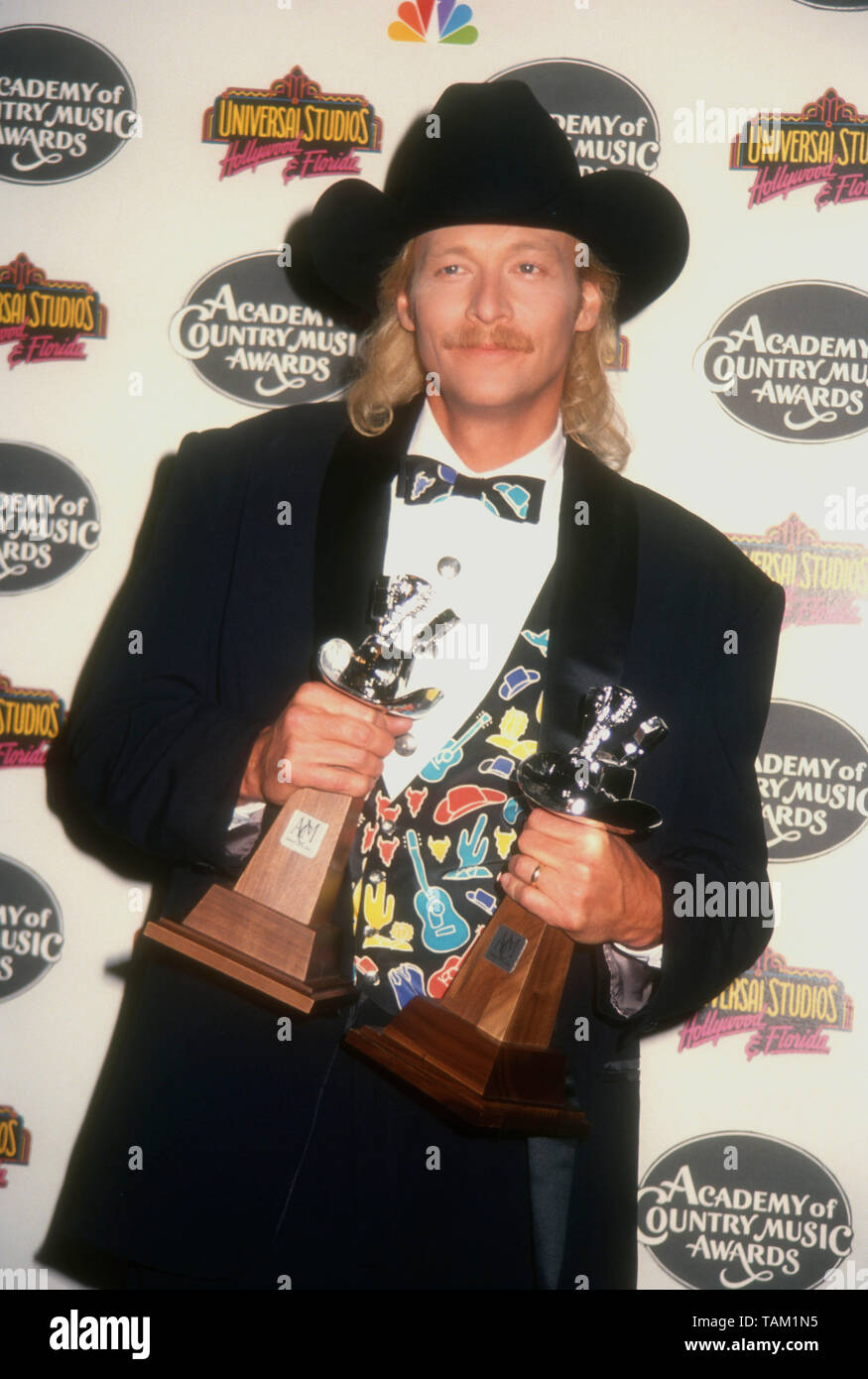Las Vegas, spring of 1994 – In a glittering night filled with country music’s brightest stars, Alan Jackson didn’t just collect trophies at the Academy of Country Music Awards. He created one of the most unforgettable and talked-about moments in the show’s history. That evening, audiences witnessed not only a superstar at his peak but also an artist brave enough to defend authenticity in a subtle yet powerful way.

Jackson took the stage to perform his hit “Gone Country,” a song already resonating deeply with fans for its proud, no-nonsense lyrics. But what could have been a standard performance quickly turned into a quiet act of rebellion. Producers had required that all performers sing to a backing track rather than playing fully live with their bands, something Jackson found disingenuous. Instead of confronting them openly, he chose a more creative method to expose the situation.
Before the show, Jackson told his drummer to leave the sticks behind and play only with his bare hands. The unusual sound was obvious to viewers watching on television, a clear sign that something wasn’t quite right. It was his way of pulling back the curtain and letting fans see that what they were hearing wasn’t truly live.
The message was loud and clear: country music should be real, raw, and heartfelt, not polished to perfection by pre-recorded tracks. Jackson’s silent protest left producers embarrassed but earned him the admiration of countless fans. Even without saying a word, he proved himself as an artist unwilling to compromise his principles. Today, that moment is remembered as one of the purest examples of Jackson’s commitment to authenticity and the true spirit of country music.
But if Jackson’s protest made headlines, his triumphs that same night ensured his name would forever be linked to the 1994 ACM Awards. It was a night of victories, the kind of sweep that few artists ever achieve.

First, he took home Album of the Year for A Lot About Livin’ (And a Little ’bout Love), a record that had cemented his place among the genre’s biggest stars. The album struck a balance between traditional country roots and modern flair, resonating with listeners across America. It wasn’t just a commercial hit—it was a body of work that spoke to the heart of everyday life in the South.
Then came one of his most beloved achievements: Single of the Year for “Chattahoochee.” The track had already become an anthem, an energetic celebration of youthful summers, riverbanks, love, and freedom. Dominating radio airplay, “Chattahoochee” transcended being just another hit—it turned into a cultural phenomenon. For many, it remains one of the defining songs of the 1990s, and for Jackson, it became a signature piece that still brings crowds to their feet decades later.
Finally, as the night drew on, Alan Jackson’s name was called yet again—this time for Top Male Vocalist. The award confirmed what fans and critics already knew: he was the standout male artist of the year, a singer whose rich baritone voice and heartfelt delivery captured the very soul of the genre.
With three monumental wins and a protest that would go down in history, the 1994 ACM Awards became a turning point in Jackson’s career. It wasn’t just about the trophies on his shelf—it was about the statement he made for the integrity of country music.
Critics later reflected on that night as proof of what set Jackson apart. While many artists leaned into commercial trends and sought crossover appeal, Jackson chose a harder path. He doubled down on tradition, on honesty, and on keeping country music tied to its roots. His courage to challenge the industry, even in such a subtle way, made him not just a performer but a protector of the genre.
Fans to this day look back at that moment with admiration, often repeating a simple phrase: “Alan didn’t play games back in the day.” He didn’t need grand speeches or fiery declarations. Just a drummer tapping with bare hands was enough to show the world exactly where he stood.

That night, Alan Jackson was both the triumphant champion of the ACM Awards and a quiet warrior for authenticity. More than three decades later, the story of the 1994 ACMs still resonates, reminding us that in country music, truth and conviction echo far longer than the spotlight of any awards show.